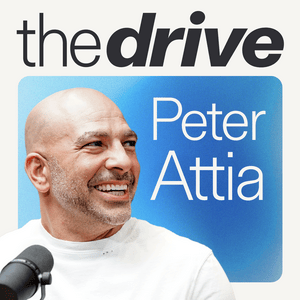View the Show Notes Page for This Episode
Become a Member to Receive Exclusive Content
Sign Up to Receive Peter's Weekly Newsletter
Abbie Smith-Ryan is a leading researcher in exercise physiology whose work focuses on how training and nutrition influence body composition, metabolism, cardiovascular health, and women's health across the lifespan, with particular attention on perimenopause and post-menopause. In this episode, Abbie explains how early exercise and play help build the foundation for bone health, muscle development, and cardiorespiratory fitness in girls, as well as how puberty and menstruation shape athletic performance, motivation, and recovery. She also explores how women can tailor training and nutrition across the menstrual cycle through smart fueling, hydration, and inflammation management; examines the evidence behind supplements such as creatine, omega-3s, and magnesium; and unpacks the metabolic and body composition changes that accompany the transition into perimenopause and menopause. Finally, she covers practical exercise programming for busy women, training and nutrition considerations during pregnancy and postpartum, and the evolving role of hormone therapy alongside lifestyle-based, evidence-driven approaches that help women better advocate for their health.
We discuss:
Abbie's background in distance running and her interest in studying women's health around exercise [3:00];
The role of early-life exercise in building lifelong bone, muscle, and cardiovascular health in girls [4:00];
Training principles for premenstrual girls, the risks of early specialization and delayed puberty from intense training, and how youth sport participation can shape bone and spinal health [7:15];
Nutrition as fuel in young female athletes: supporting training, growth, and performance [11:00];
Training and recovery across the menstrual cycle: recovery, nutrition, supplements, and practical strategies for performance support [16:00];
The benefits of creatine supplementation and importance of protein intake across the menstrual cycle [27:15];
How women should approach training intensity and volume across the menstrual cycle [33:00];
How to identify and monitor the perimenopausal transition and why this phase represents a critical window for exercise and nutrition interventions [37:15];
Case study: time-efficient exercise program for a busy, perimenopausal woman [42:00];
Why improving body composition is a better goal than weight loss, and how to set realistic fat-loss targets in midlife women [53:30];
How to preserve muscle and bone while using GLP-1 medications: resistance training, protein intake, and more [58:15];
Designing a three-hour-per-week training plan for sustainable body recomposition [1:03:30];
Abbie's insights from her 20+ years of self-tracking: nutrient timing, injury prevention, excessive training, bone health, and more [1:07:15];
How pregnancy and the postpartum period affect body composition, and how consistent exercise and intentional nutrition can prevent a permanent shift in body fat or muscle mass [1:13:30];
Changes in muscle quality and metabolic flexibility during perimenopause and menopause, and how exercise may counteract hormonally driven sarcopenia [1:21:45];
The biggest open questions about women's health: combining menopause hormone therapy with exercise, GLP-1 drugs, minimizing injury risk, and more [1:32:00];
How the training response differs between men and women, and the importance of type IIa muscle fibers [1:39:15];
Training advice for the hypothetical 70-year-old woman who has never exercised deliberately [1:47:00];
Misinformation about exercise and nutrition for women, injury risk, supplement hype, and the need for more nuanced messaging around hormones, recovery, and midlife training [1:53:30];
Benefits of hormone therapy in midlife women and its interaction with exercise and lifestyle interventions [2:00:15];
Peter's overall take on how women should approach exercise volume and intensity at various life phases and time constraints [2:03:00]; and
More.
Connect With Peter on Twitter, Instagram, Facebook and YouTube


